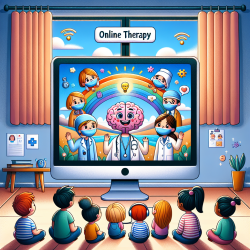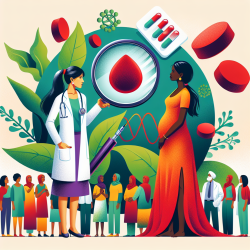As a passionate advocate for children's well-being and development, it's essential to continually refine our therapeutic approaches. The recent study, "Bringing new life in: Hope as a know-how of not knowing," published in Frontiers in Psychology, offers valuable insights that can be leveraged to improve outcomes in online therapy services, such as those provided by TinyEYE.
The research explores the concept of hope not as a mere emotion but as a practice deeply intertwined with uncertainty and shared social agency. This enactive-ecological approach suggests that hope can be a powerful tool in therapeutic settings, particularly when working with children and their families.
Key Findings from the Study
- Hope as a Practice: The study emphasizes that hope is not just an individual emotion but a shared practice that involves social interaction and linguistic engagement.
- Uncertainty and Possibility: Embracing uncertainty can create space for reframing situations and fostering new possibilities, which is crucial in therapeutic contexts.
- Community and Support: The role of community and social support is vital in sustaining hope, particularly through reframing and shared narratives.
Implementing These Insights in Online Therapy
Given these findings, here are practical ways to incorporate the concept of hope into online therapy sessions to enhance outcomes for children:
- Encourage Open Dialogue: Foster an environment where children and their families feel comfortable expressing uncertainties and fears. This openness can help in reframing challenges and exploring new possibilities.
- Build a Supportive Community: Utilize group sessions or family-inclusive therapies to create a network of support. Shared experiences and narratives can significantly boost hope and resilience.
- Focus on Process Over Outcomes: Shift the emphasis from achieving specific outcomes to engaging in the therapeutic process. This approach can reduce pressure and help children and families stay hopeful despite uncertainties.
Further Research and Continuous Improvement
While these strategies are a great starting point, it's crucial to stay informed about ongoing research and continually adapt our methods. Encouraging practitioners to engage with the latest studies and incorporate new insights will ensure that we provide the best possible care for our young clients.
To read the original research paper, please follow this link: "Bringing new life in": Hope as a know-how of not knowing.










